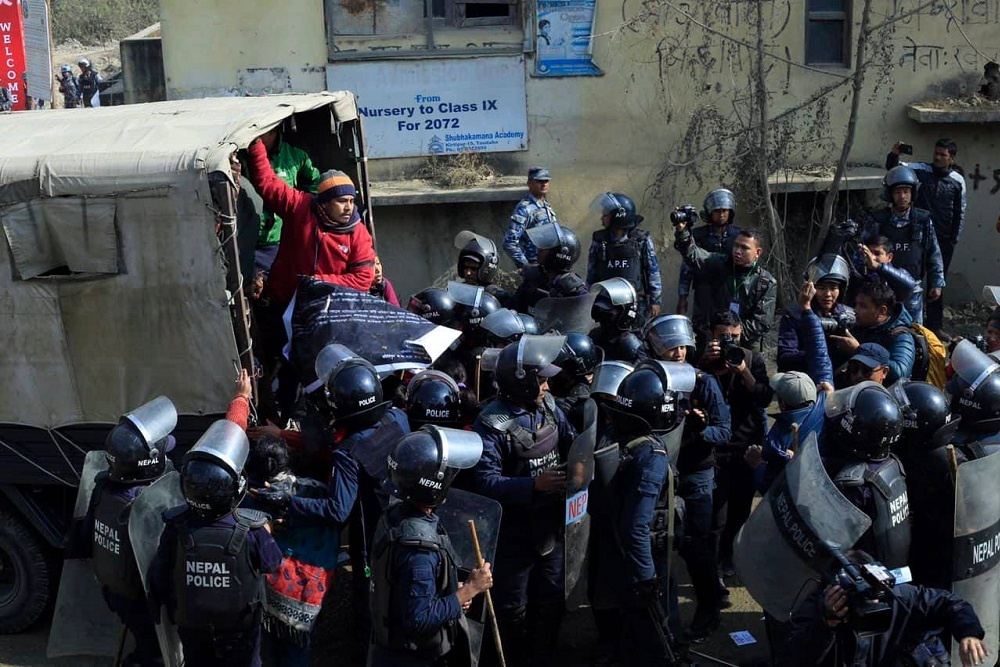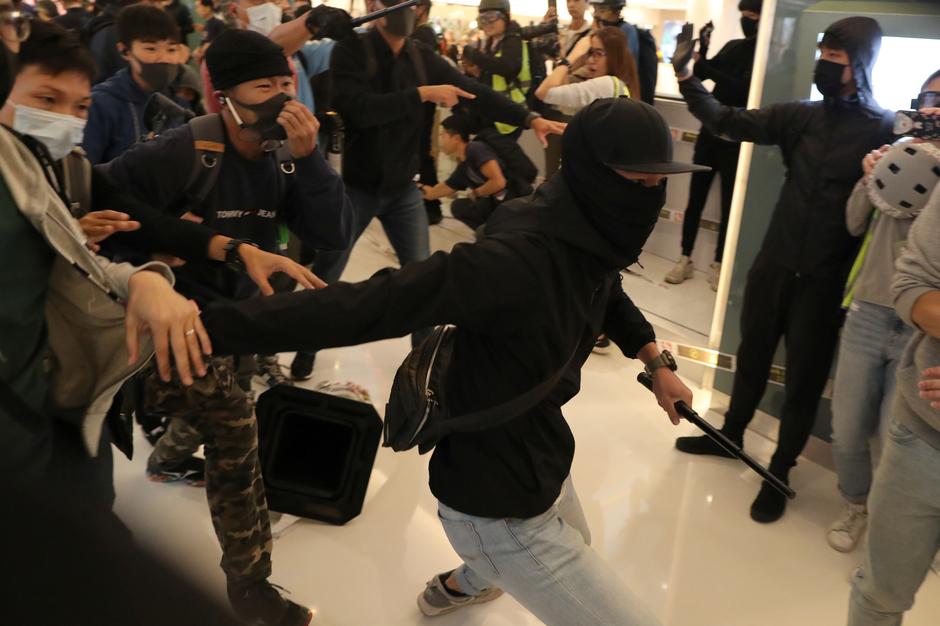Nepal police have confirmed the arrest of 122 Chinese nationals in its biggest crackdown on crime by foreigners entering the country on tourist visas.
Uttam Subedi, the chief of police in Kathmandu, the state capital said the suspects were rounded up in raids following information that they were engaged in suspicious activities.
Subedi, also stated the detained Chinese are suspected of cybercrime and hacking into bank cash machines, adding that they were being held in different police stations and their passports and laptops had been seized.
Eight women were reportedly among the 122 Chinese nationals arrested in a coordinated police raid on nine houses in Kathmandu.
Police said the houses were set up like hostels with large kitchens, bunk beds and rows of tables and chairs for working.
According to reports, more than 700 mobile phones, 331 laptops, and nearly a hundred desktop computers were confiscated from the houses. Police also gathered pen drives and SIM cards.
Hobindra Bogati, another senior police officer, said the Chinese embassy knew about the raids and had supported the detentions of the 122 Chinese nationals.
MOFA confirms 122 Chinese arrest
China’s Ministry of Foreign Affairs (MOFA) had also confirmed that the 122 Chinese nationals arrested by the police in Nepal are suspected of engaging in cross-border cyber fraud.
Geng Shuang, Chinese Foreign Ministry spokesperson said the case is undergoing investigation, terming the raid as an essential operation conducted under close cooperation between the police of China and Nepal.
Geng further noted that China is ready to strengthen cooperation with Nepal in all areas, including law enforcement. Adding that they intend to jointly combat cross-border crimes and promote friendly exchanges between the two peoples.
Chinese nationals committing illegal activities in Asia
Asian countries have made a remarkable effort towards dismantling Chinese criminal networks, which often take the form of unlicensed gambling operations.
According to reports authorities in the Philippines arrested 342 Chinese workers in a raid on an unlicensed gambling operation recently.
In September, police arrested five Chinese nationals on a charge of stealing money by hacking bank cash machines. Chinese citizens were also detained with smuggled gold this year.
Last month, the Philippines arrested more than 600 Chinese nationals in a week for involvement in online gambling and cybercrime operations.
In October, more than 800 Chinese men were arrested in Mongolia during an anti-money-laundering investigation.
Notably, Nepal and China signed a treaty on mutual assistance in criminal matters during a visit to Nepal by President Xi Jinping in October.
According to Nepal Tourism Board data, more than 134,000 Chinese tourists visited Nepal between January and October this year, up to 9.2 percent from the same period in 2018.
What else is there regarding Chinese espionage?
Not many months ago, we have read a blunt report from the director of National Intelligence:
China’s intelligence services will exploit the openness of American society, especially academia and the scientific community…
Texas Republican Sen. Ted Cruz told Fox News about a bill he has re-introduced, The Stop Higher Education Espionage and Theft Act:
It is widespread and it is dangerous and this is legislation designed to stop that,” Texas Republican Sen. Ted Cruz told Fox News about a bill he has re-introduced, The Stop Higher Education Espionage and Theft Act.
Sen. Cruz had also raised the alarm about a Chinese-backed academic program, The Confucius Institute, that currently operates on about 100 U.S. campuses.
We wait with bated breath for updates on these legislations and investigations by duly appointed authorities.







